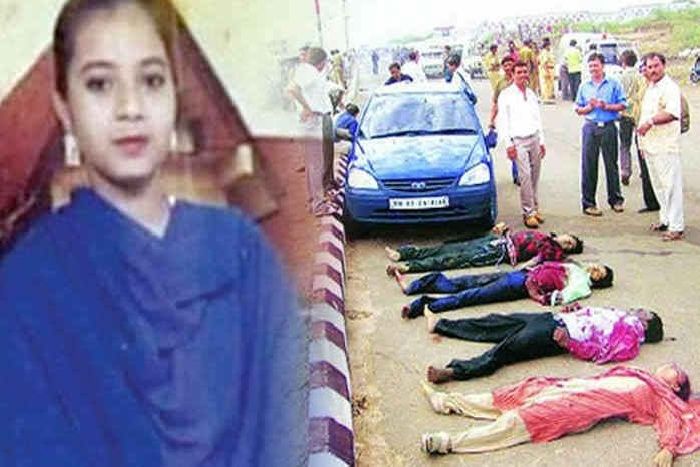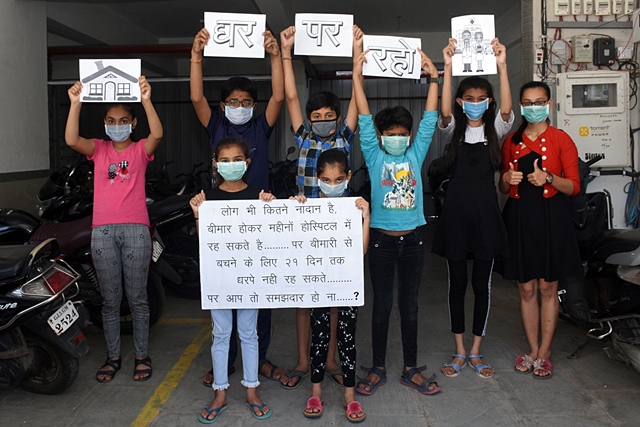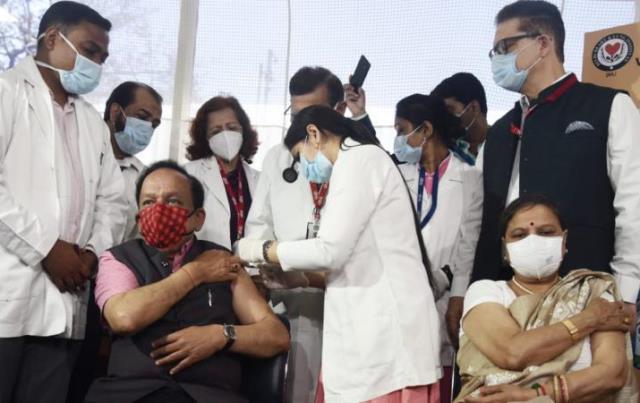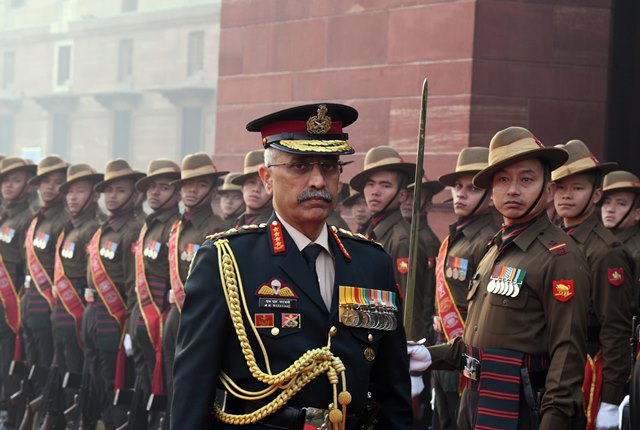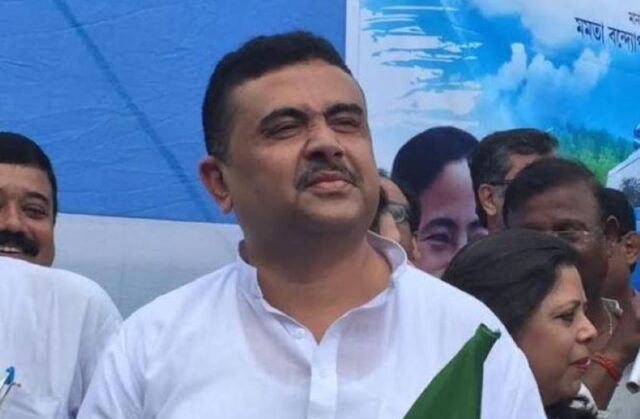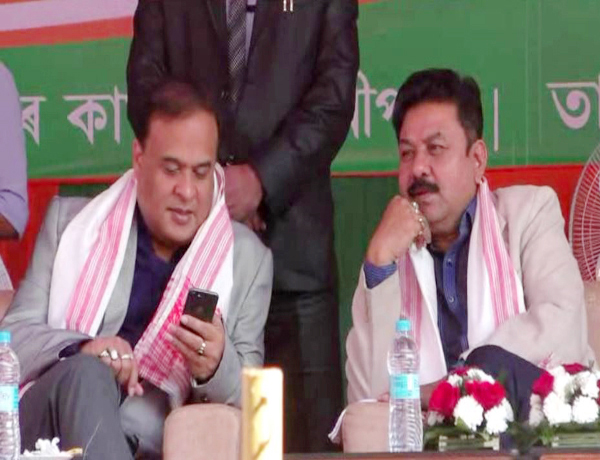Coronavirus has turned our lives upside down in more ways than one and even after a year of the pandemic being officially announced, the world is not in the green. As a community medicine practitioner in Epidemiology, I have been studying the behaviour of the novel Coronavirus and its host, us, the humans. Yet, no matter how much I study things in detail, I always come to the same conclusion about the Coronavirus: This virus can change forms (mutate) and come up with new strains faster than we can figure out its cure or vaccine. So, our best bet right now is to avoid the virus! The prevention is easy; the cure may not be.
Our best preventive tools – masks, hand-wash and sanitisers are now easily available. What is not easily available is the will in most people to co-operate and use these tools both for individual safety as well as public health. Even as the number of infected cases and resultant fatalities rise, there is a certain nonchalance in public behaviour regarding the risks. On March 27, more than 62,000 new cases were registered across the country, with over 300 deaths. The first time that the number of people infected in a single day went above 50,000 was July 27, 2020. The last time that the number of new cases went above 50,000 was November 6, 2020.
Even though the number of new infected cases is going up, the ratio of the number of people losing their lives to the infection, is so far less in 2021, than it was in 2020. However, those suffering with manifestations are showing somewhat severe symptoms than before. Though panic is never a way forward, but we should not definitely let our guards down yet as well.
We are seeing a renewed, fresh wave of the virus because the virus has mutated (changed its basic genetic structure and developed newer, more dangerous strains) to survive in its human hosts. We have learnt some strategies to cope with them and the virus too has gained new skills to dodge the human immune system! The influenza virus mutates almost every year and develops new strains. We will have to see which way the wind blows for the novel coronavirus. It definitely has mutated within a year.
With newer mutations coming up globally we are faced with the threat of the new strains, the UK strain, the South African strain, and the Brazilian strain. It is the antigens that are responsible for stimulating the production of antibodies by the immune system. Even minor mutations depending on the area of the virus they have occurred in, can play in a big way with our immune systems, and are known as ‘variants of concern’. These new variants are identified using a process known as genome sequencing, which reads and then interprets the genetic information found in the RNA- Ribonucleic acid (in this case) of the virus. We need to study the virus to be able to fight it better.
India, through genome sequencing has also detected what is known as a new “double mutant” COVID-19 variant. This means that two important changes are coming together in the same virus. The mutations are basically affecting key areas in the spike protein (the crown-like area which helps the virus to latch on to human cells) of the coronavirus and thus helping them skip or escape the resistance offered by our immune system. This is mostly affecting states like Maharashtra and Delhi the most. Other states closer to these two are also reporting increased number of cases. This is probably because these two states have the maximum international travel (both inward and outward) and thus the maximum exposure to the virus, both by way of the original strain (from Wuhan, China) and the 3 newer strains. At least 18 states and Union Territories in India now have different strains of coronavirus running amok: the UK strain, the South African strain and the Indian strain, so to speak. The threat of infection is high.
What all this means is we are taking one step forward and two steps back in terms of handling the pan-world health crisis. We were all thinking that with the vaccine we would now be saved, but the virus is changing in ways that render the vaccines weak. We cannot say that a person who has been infected once and has received the vaccine as well, won’t be re-infected, though it depends upon an individual’s immune strength as to how his/her body will react and to what level they would be affected.
However, the scientists suggest that the severity of the disease will be bit lesser among the vaccinated individuals – a ray of hope, but still the battle against spread of infection, is on. During the first wave of coronavirus in March 2020 what saved us was the lockdown; it helped in more ways than one to trace and isolate and further treat infected people. However, for all purposes, a second nationwide lockdown doesn’t look feasible, because it affects the people financially when they are not able to earn their livelihood.
What we need right now to handle the second wave is a really strong execution of the plan we already have in place. Public health awareness was already achieved during the first wave; almost the whole population is aware of the crisis as well as the solution, but what is missing is a respect for solutions and the motivation to enact those simple behaviours.
We need strong public health advocacy. Everyday we need to educate, organize and mobilise to change the reluctant and seemingly over-confident attitude among the mass as a whole. We need people at the grassroots level to reinforce for good the safety measures. So many people have let their guards down after one year of the pandemic. The various state elections, the many political rallies, the many religious festivals (we have the upcoming Kumbh Mela) have all contributed to the pandemic still holding fort really strong. We need strong community level leadership at every possible level. Anyone with a voice that is heard and respected should advocate for the use of masks, regular handwashing and social distancing. I wish some religious leaders across faiths weren’t so dismissive of the severity of the pandemic; since many people listen to them.
We need to reach out to these leaders so that they can influence their followers. Faith must meet science if we want to overcome the pandemic. Political leaders at centre and state levels need to reach out to every kind of leaders possible, to bring about behaviour changes among the people to eliminate the virus from amidst us. To use a sociological concept, we need to the diffuse ideas of public well-being and precautions so that they become culturally acceptable and thus practiced among large parts of the population. The media plays an important role here.
The onus this second time around is truly on the public. We will keep losing the race to the virus until we follow the basic measures stringently. Lockdowns can only stop inter-cluster exchange or two areas with infection from interacting with each other and thus ceasing a larger spillage, but it may not stop intra-location infections. Nowadays, we have a huge number of people living in societies and apartments. Even if they go out only to buy essential items, but don’t follow basic precautionary measures like masks etc. they can still infect or be infected.
All of us depend on each of us this time. It’s kind of “One for all, all for one” idea! As a Community Medicine expert, I once again want to emphasise that it is the community spirit which will keep us safe and alive. Each one for another! The virus alone is not the real enemy, but our relaxed approach to the virus certainly is! We can weaken it in some time if we strictly follow the rules. The so called herd immunity has not shown promising results in this case, so individual immunity is all we have to turn our communities healthy. If we don’t want another lockdown, let’s bring out masks, sanitisers and the will to keep fighting the contagion – by respecting the social distancing norms. Let us put all efforts to develop a “behavioural herd immunity” this time.
The writer is an epidemiologist at College of Medicine & Sagor Dutta Hospital in Kolkata)
